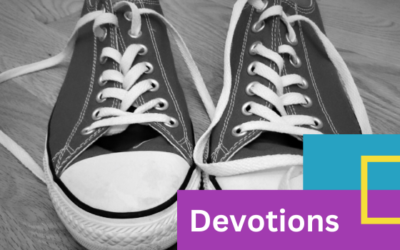This is a difficult, confrontational and complex topic. I am not going to address the entire issue of homosexuality in this short article, rather I will focus on the relational aspects of the issue. To put it a different way , I will be discussing how you can respond to a loved one when they tell you they are gay.
Some of you will probably think I don’t go far enough in what I write, others of you may think I go too far. And I’m okay with that. Hopefully it sparks more conversation.
It is important to affirm our position on homosexuality so you know the framework I am coming from. Our LCMS doctrine and set of beliefs is very important and in many ways defines who we are. The LCMS believes that the Bible teaches that homosexual behavior is contrary to God’s Word and will, and seeks to minister to those who are struggling with homosexual inclinations (www.lcms.org). Our theology says, “Whatever the causes of such a condition may be…homosexual orientation is profoundly ‘unnatural’ without implying that such a person’s sexual orientation is a matter of conscious, deliberate choice. However, this fact cannot be used…as an excuse to justify homosexual behavior. …<we are> accountable to God for homosexual thoughts, words and deeds.” (LCMS CTCR Document: Human Sexuality, A Theological Perspective, p. 35). We teach that the redeeming love of Christ, which rescues humanity from sin, death, and the power of Satan, is offered to all through repentance and faith in Christ, regardless of the nature of their sinfulness (www.lcms.org). Therefore, Christ’s forgiveness is as much for the gay person as it is for the straight person who struggles with pornography, masturbation, fornication, and even non-sexual sins like cheating, lying, stealing, pride, etc.
That being said, let’s move on to our topic. If I were speaking directly to a gay person, the above paragraphs would not be the first thing I would say, they were disclaimers that I want you, the reader to understand as foundational to this discussion.
Listen to these quotes and think about how they make you feel. George, a member of the LGBT community says, “I feel religion has become a scapegoat for us. We know it’s there, we know they hate us, but they’re not ever going to change. Instead of giving them more relevance let’s focus on what we can change—the legal system.” (Andrew Marin, Love is an Orientation, p. 56) Another quote: “There are all kinds of medals given out for going to Africa to help with AIDS and for dealing with “respectable” illnesses but the stigma attached to being gay is as prevalent today as ever. How sad. This is the reason I don’t go to services—I can’t find a temple or a church that is really eager to allow me to be honest with what I face on a daily basis. It has always been as though I was supposed to already be “fixed” just because I showed up at services. Anyway, I have reached a point of hopelessness because there really is no one with a true heart to help.” (Andrew Marin, Love is an Orientation, p. 58)
What has the Christian church been doing and saying to these people that have left them hopeless and anti-Christian? I’ve never had a close friend or family member come out to me. I’ve not had much interaction with the LGBT community. But I think there are some biblical principles we can use in our conversations and interactions with the LGBT community.
What’s happened? Andrew Marin in his book “Love is an Orientation” says that Christians and the LGBT community view themselves in the same role: “Each group sees itself as the underdog who has to fight our way out of the corner. Both believe they are David and the other is Goliath. Two oppressed mindsets fighting each other will never win the same battle.”
I think Marin’s assessment is right on about the rift between Christians and the LGBT community. It’s real and it’s sad. In the groundbreaking book “Unchristian” by David Kinnaman, a research project looks into the way 16 to 29 year old non-Christians view Christians. The three most common perceptions they have of present-day Christians are that they are anti-gay (91%), judgmental (87%), and hypocritical (85%). How does this make you feel? It’s sad that the very first thing that non-Christians (both straight and gay) perceive of the church is that we are an anti-gay people. There is a rift there. And it’s going to be hard to bridge the gap. That’s something that Marin has been working on for many years now. And I think he’s one of the most qualified people that can speak to this. Although only a couple of years older than I am, he has immersed himself in the LGBT community so that he can learn from, listen to, and love them. He began a foundation called the Marin foundation that is conducting the largest ever research study on religion in the gay community. He and his wife and children have chosen to live in a LGBT community in the outskirts of Chicago. He calls himself the “gayest straight dude on the face of the earth (Marin, 19).” He has seen it all. And much of this article relies on his expertise. But first, let’s look at the relationship between the gay community and the Christian community. We said the relationship is bad…but how bad is it? Marin attended a gay parade in Chicago earlier this year and he captured it on video. Here are just three minutes of what the gay community hears from the Christian community, take a look; http://www.youtube.com/watch?v=heh1Np6oUyw.
How did that video clip make you feel? The audacity of the man (who is as much of a sinner as any LGBT person) to just yell “sick, sick, sick…” Pathetic. And Andrew is right…we don’t know what to do. We don’t know what to say. Did you see the Christians yelling? No wonder people think that Christians are anti-gay. How do we bridge that? What do we do?
First, it has to start with us. We have to be the ones who initiate. We need to begin with our own repentance. We need to repent for any time that we have ever slandered, joked about, impersonated, or frankly mistreated someone who is gay just because they were gay. We are to repent about not caring about the LGBT community. We are to repent for the missed opportunities to befriend and share the Gospel in a loving way with those in the LGBT community.
Our initial response to the LGBT community should be love. Marin says,
“It’s counterproductive and even arrogant to think we can help, listen to or learn from anyone else while not being able to get past our own hurdles. (Marin, 62)”
Marin said that while three of his best friends came out to him in three consecutive months, one of the biggest stumbling blocks for him was that he wasted so much time thinking about them involved in gay sex that he had no chance to concentrate on listening, learning, and building a bridge (Marin, 62). We have to look at the person as a person, and not look at them as just being gay. Being gay doesn’t necessarily define who they are. Just as much as you are a child of God, they also are a child of God: A human being that God created…a human being that God loves.
If you want to reach people who are gay, you need to get to know the culture. This is a step-by-step process. Here are a few things to know before you start. For example: Don’t use the word “homosexual” to describe who they are. It’s offensive to many gay people. Use words like gay, lesbian, or LGBT. The phrase “love the sinner, hate the sin” “is distained. To them, behavior equals identity, and hating gay sexual behavior is the same thing as hating the gay person. (Marin, 46) It’s important to pace yourself and if the situation is too tense or overwhelming for you, then back off. But do your best to get to know the people. That’s what any good missionary who goes into a different country or culture does. They incarnate themselves into that culture. They becomes a part of it so that they can know who they are so they can know how best to minister to them.
Marin says that we are to “prepare ourselves to not say or do anything that would be contrary to our intent to learn or serve—to not preach at, argue with, fight or debate gays and lesbians on their territory (Marin, 63).” When we approach the LGBT community we must not start with God’s judgment for them. Too many people do. Avoid telling them that God hates their sin as the first thing that comes out of your mouth. Just listen to them. Learn from them. Talk to them about their struggles. Our love comes not just from words, but more importantly from our actions. When we listen, we show that we truly care, and in return, they are much more apt to hear what important Gospel words we share with them. The other thing we shouldn’t try to do is to force change. Marin believes that only about 20 percent of the LGBT community is actively interested in ex-gay ministries and a change in orientation. That means that 80 percent of the LGBT community wants absolutely nothing to do with it (Marin, 99). When all you try to do is change them you lose them as an audience to hear the Gospel.
But you might be asking, “Well, don’t we want them to change their lifestyle?” Yes we want their life to reflect the life of Christ, but we must trust God to transformation their life. Our job isn’t to judge and condemn people of the LGBT community; our job is to love them and show them Jesus in their life. Anytime Jesus is there, change and transformation naturally happen.
When Jesus came into your life, you changed. You were transformed. You are not the same person. It is not our worry to change their sexuality. What we should be worried and concerned about is loving them like Christ has loved us in both our words and our actions. Christ bridged the gap between us and God. His love was and is unconditional for us; it’s not based on us being perfect. His loving sacrifice for us on the cross forgives our imperfections. That is the Gospel message. God has come into our lives and changed who we are. He knows that we are sinful, but He doesn’t let our sin define us. Through his forgiveness, we receive a new identity in Him. If he can do that for us, he can do that for members of the LGBT community. When the love of Christ is practiced in someone’s life, it transforms them. Forever. And we are no longer defined by what we do or by how we live, but by the blood of the one who lived and died for us.






0 Comments